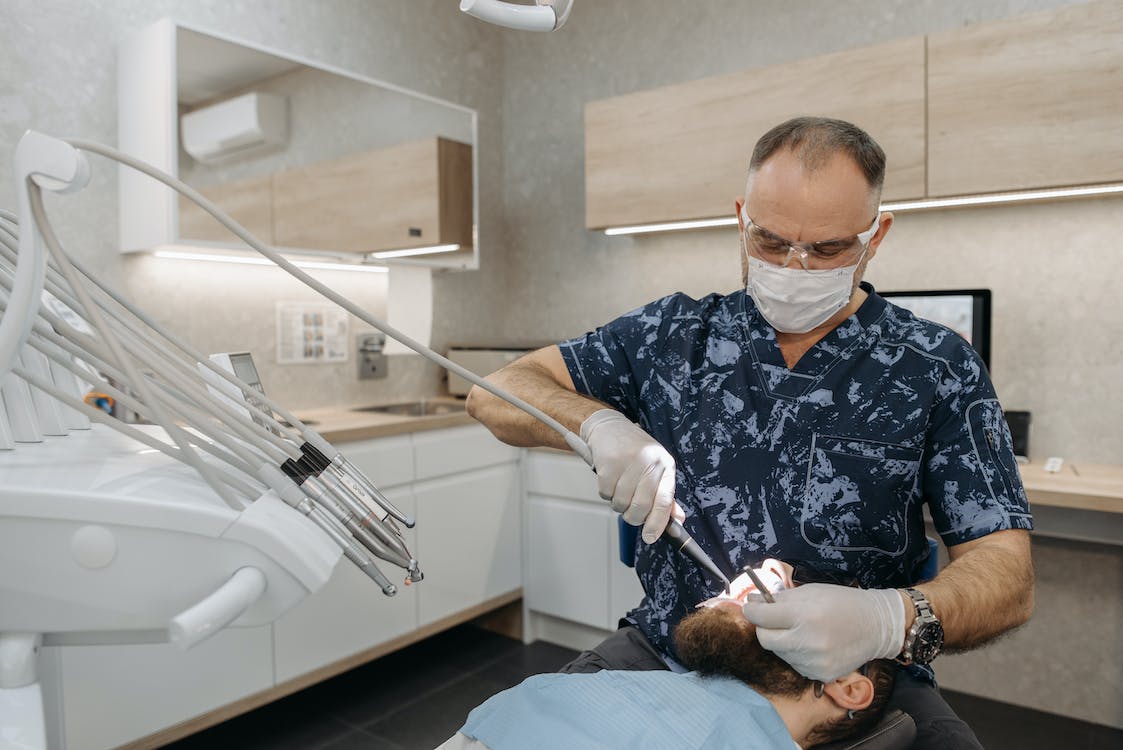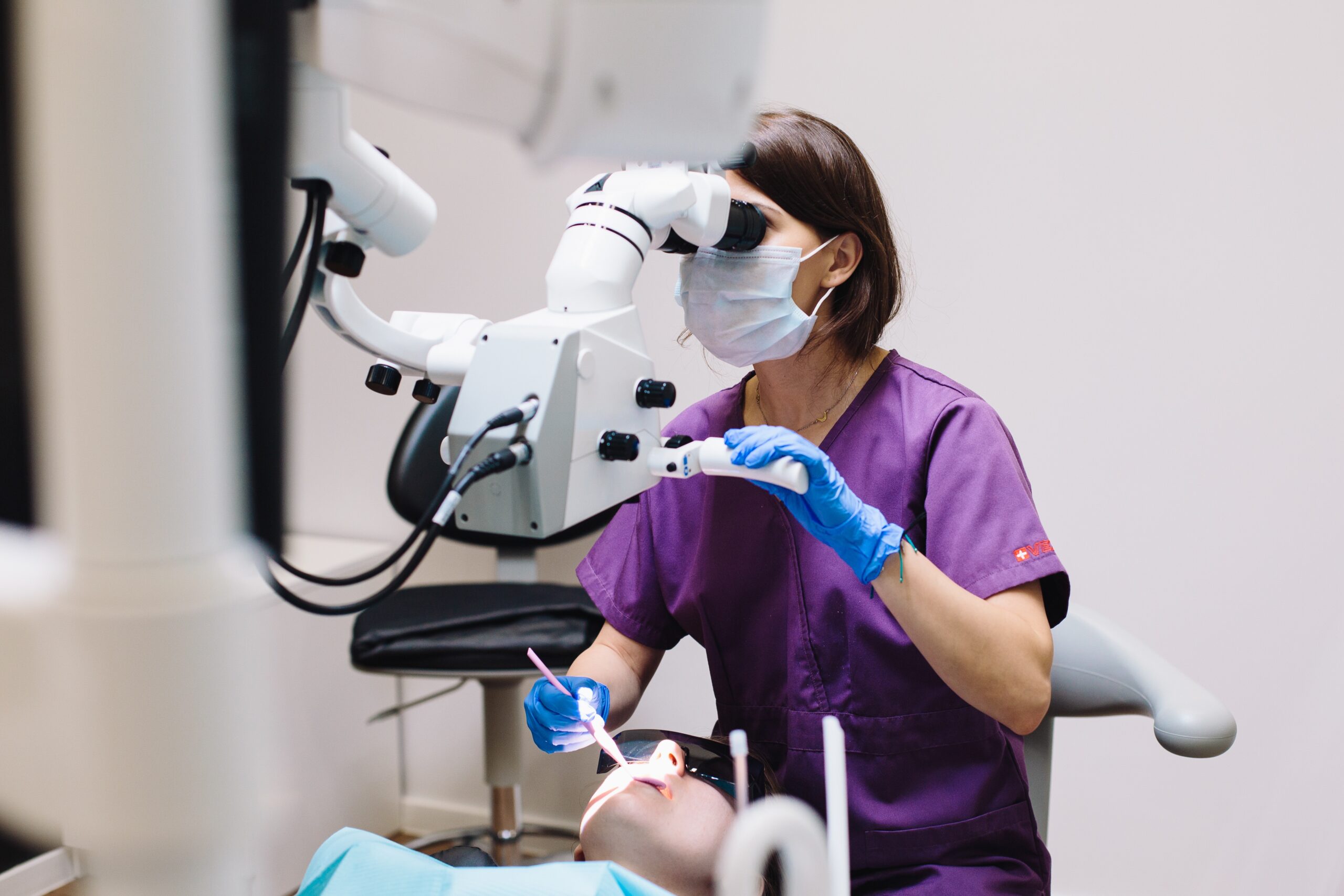Dental care for your child begins at home even before any tooth appears after the first 6 months. Wipe the gums regularly with a piece of wet cloth to clean the harmful bacteria. As the child grows, parents must teach them to brush the teeth daily by helping them go through the chores until they start doing it independently. Although it is never easy to teach the habit, every parent must teach by setting an example to persuade them to follow their parents and pick up the habit quite early. Therefore, it is clear that it does not require a dental clinic visit to teach dental care to your child. But having made a beginning, it is critical to keep up the good habit and expand the scope of children’s dental care as they grow up and become prone to dental problems.
The first visit to a dental clinic
Before taking the child to a dentist for the first time, parents must acquire proper knowledge about maintaining children’s oral health and hygiene. Parents can help take adequate care of their dental health until they celebrate their first birthday, which coincides with the first visit to a dental clinic. The first visit to a dentist usually familiarizes the child to sit on the dentist’s chair while parents learn how to take care of their child’s teeth.
Typically, the first visit should have nothing about dental treatment as the child would normally not have any dental problems. This status can continue for a full year until the second birthday, provided the child starts drinking from a cup by giving up the bottle and does not drink or snack in the middle of the night.
According to a pediatric dentist in Tampa, Florida, after the child attains two years of age, visiting a dentist every 6 months is advisable. In that sense, children are at par with adults who should follow the same dental checkups schedule.
Dealing with baby teeth problems
There are high chances that parents might deviate from the recommendation of dental checkup twice a year at least until the age of 6 or 7 when the baby teeth start falling off, and permanent teeth start growing. Parents take some chances with baby teeth as it will go away anyway and eliminate the problems that might crop up interim. However, there might be situations when some problem aggravates. It might require emergency dentist services, especially for children who overeat chocolates and candies, which can cause cavities.
Regular checkups from an early age are beneficial
It is never a good idea to wait to take your child for dental checkups only after the permanent teeth start showing up. In many cases, the growth of the permanent teeth is disorderly, and early detection of the problem can help avoid poorly grown teeth later. Usually, permanent teeth keep growing under baby teeth, and if it does not get adequate space to shoot up through the gums, it can result in crooked teeth. Only a dentist can identify any problem early and suggest remedial measures so that the permanent teeth can find its proper place on the gum without any distortion. If the dentist suspects any possible deformity in the permanent teeth, it will be possible to take timely corrective action. The dentist will ensure that your child has the best dental health as they grow.
Intensive dental care as age increases
Intensive dental care becomes necessary for children between 6 to 12 years when the focus of the care shifts from routine dental care to prevention treatments. Between 7-9 years, cavities are the most common dental problems that children face, and any pediatric dentist will recommend applying a sealant to the teeth to prevent cavities. Sealants are resin compounds that bond to the chewing surfaces to form a hard coating that does not wear away quickly and protect the teeth from cavities. The molars with grooves and valleys are most susceptible to cavities due to bacteria adhering to the uneven surfaces that are hard to clean. Applying sealants will even out the chewing surfaces and enable proper cleaning besides providing a hard surface that prevents cavities.
Do an orthodontic evaluation
As the child attains 7 years, it is time for an orthodontic evaluation to understand the nature of permanent teeth growth. If braces are necessary, the dentist will provide them until the child reaches the teenage years. The assessment will also help detect any chances of growing crooked teeth, and proper treatment during adolescence can correct the problem before it goes out of hand.
Not only regular dental checkups but practicing good oral hygiene like brushing twice a day and flossing daily will ensure good overall health. Ensure that you child follows the habit and they can enjoy a lifetime of healthy oral conditions.
Dental Health for Children
Healthy teeth are essential to your child’s overall health as they help your child eat and talk. Good dental health helps keep your child’s teeth strong, while poor oral health may lead to disease, infection, or other teeth problems. Here are some tips to improve children’s dental health and avoid serious oral problems.
Regular Teeth Brushing
Brushing your teeth is extremely important at every age. Whether your child has started teething or not, you should run a clean, damp washcloth over their gums to clear away any harmful bacteria that may have gathered over the day.
When your child starts growing their teeth, brush them using an infant toothbrush with water and a tiny rice grain-sized fluoride toothpaste. Even a baby’s teeth can begin decaying, so you should ensure that you do not offer them foods and liquids containing a lot of sugar, as it can stay on their teeth for hours and eat away at the enamel.
Once the child gets old enough to brush their teeth, teach them the importance of brushing them and the proper way to do it.
Get Enough Fluoride
The enamel on your teeth prevents cavities and bacteria from festering. The tougher the enamel, the harder it will be for the acid from foods to penetrate their teeth. To strengthen the enamel, you should regularly use fluoride. This substance is usually found in toothpaste, but you should be careful of using too much fluoride as it is known to cause tooth discolorations.
Limit or Avoid Some Foods
Certain foods, like sugary juices and candies, are known to erode enamel, causing cavities. If your kids enjoy these foods and consume them regularly, always have them rinse their mouths or brush their teeth afterward.
Diet
Kids who enjoy sugary foods and drinks are at a higher risk for cavities, so you should actively encourage them to make healthy food choices. Help deviate them from consuming too much sugar and provide low-sugar alternatives.
Conclusion
A child’s teeth are essential to their health because they use them to talk and eat. Healthy teeth will allow your child to feed themselves and advance their language skills. Therefore, you must take active steps to ensure your child has good oral health. One of the best ways is to take them to a dentist regularly.


